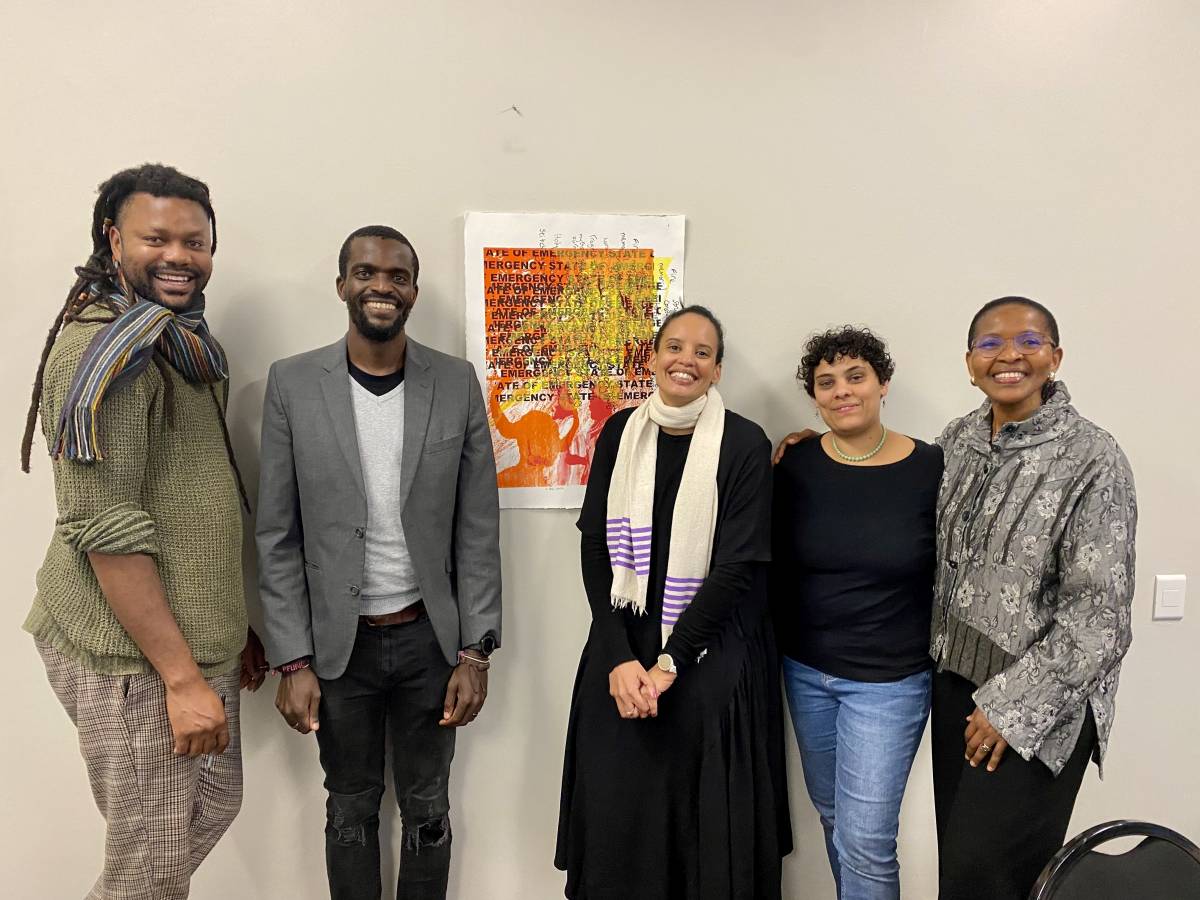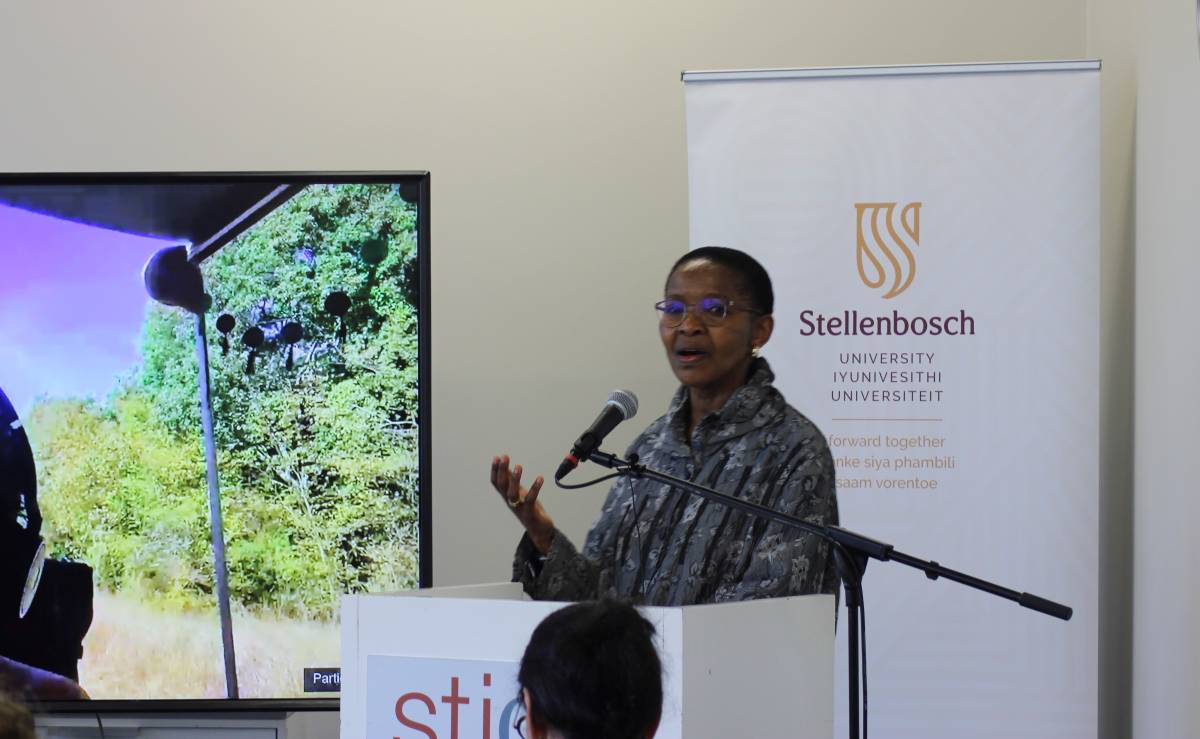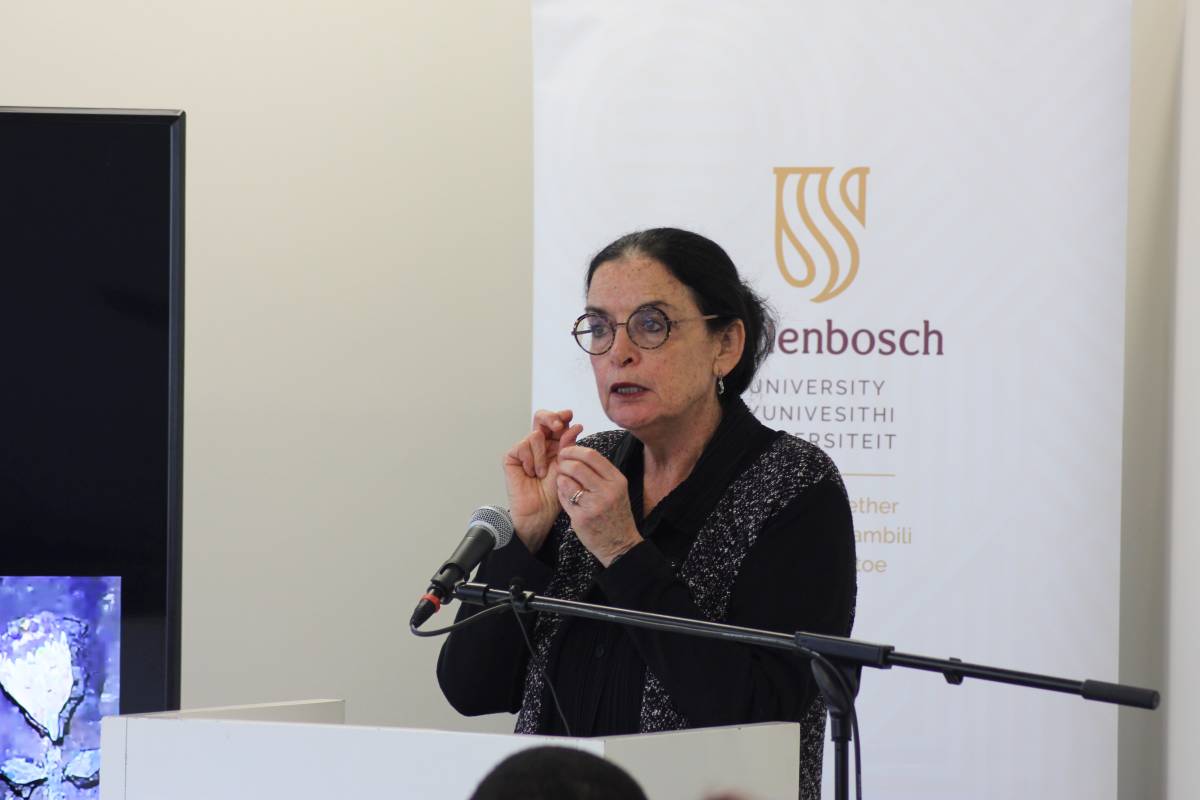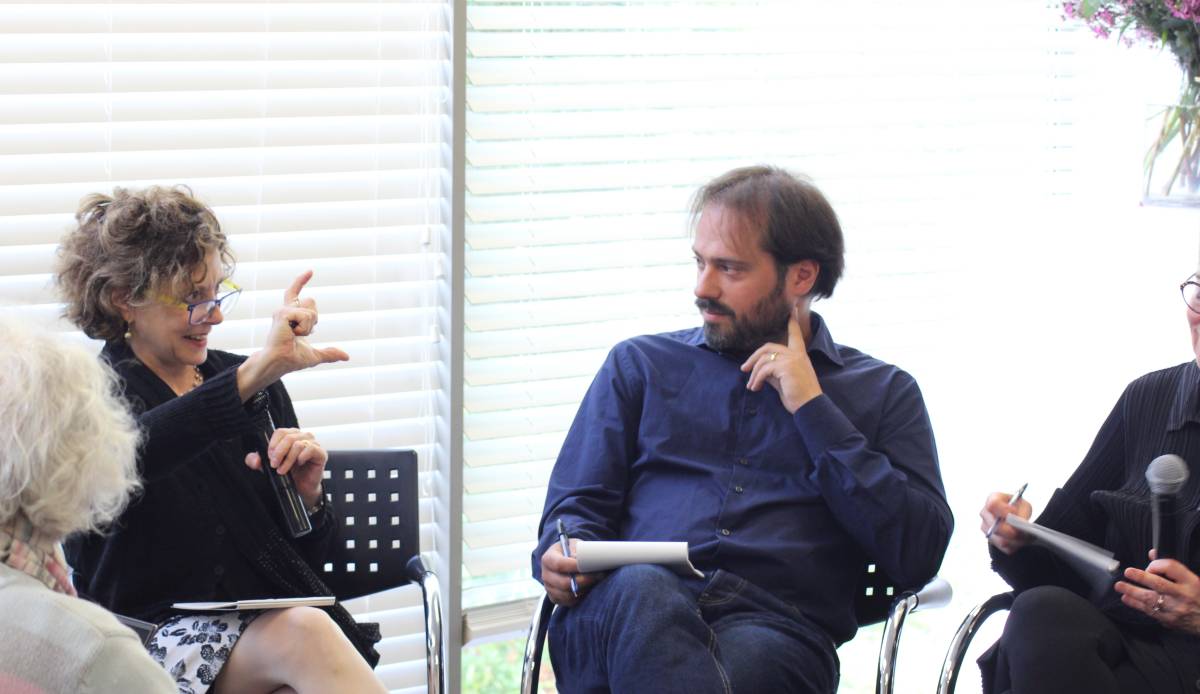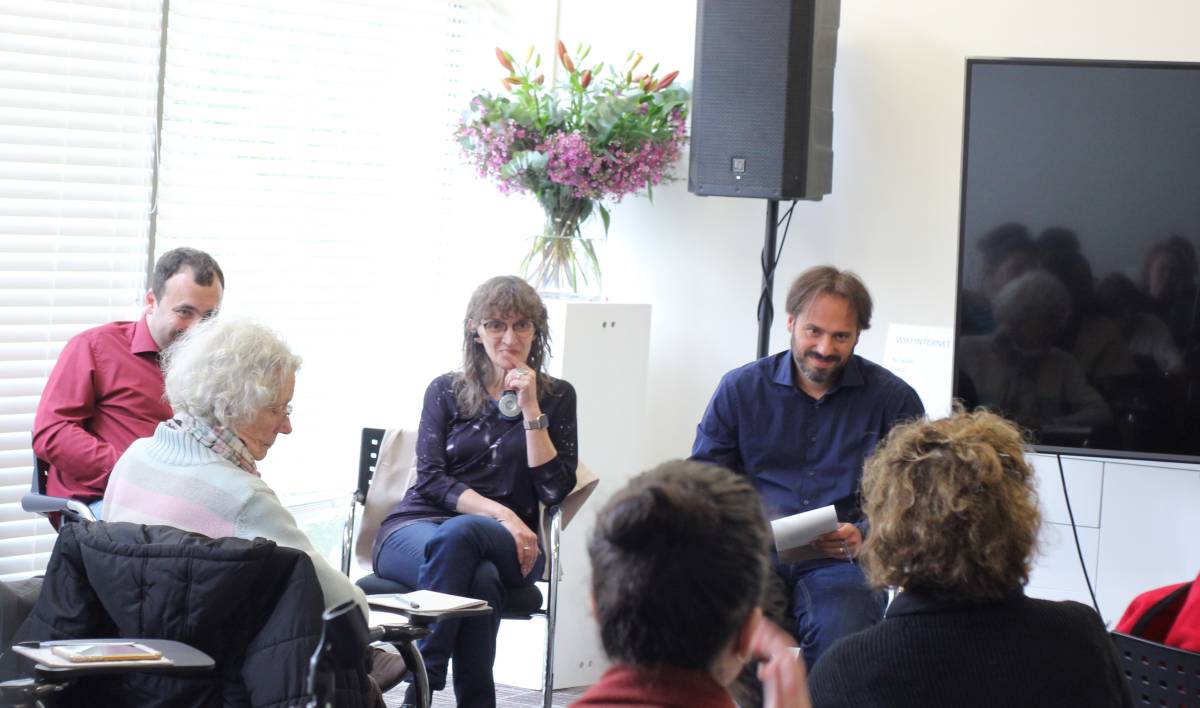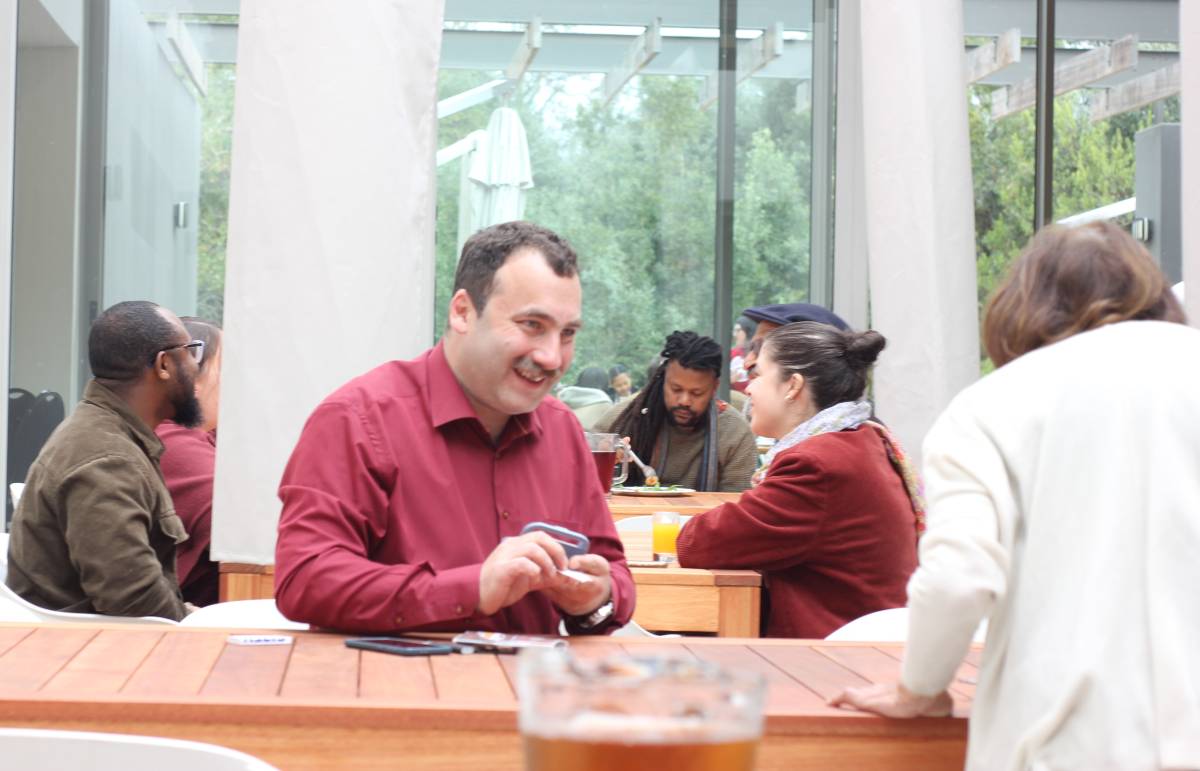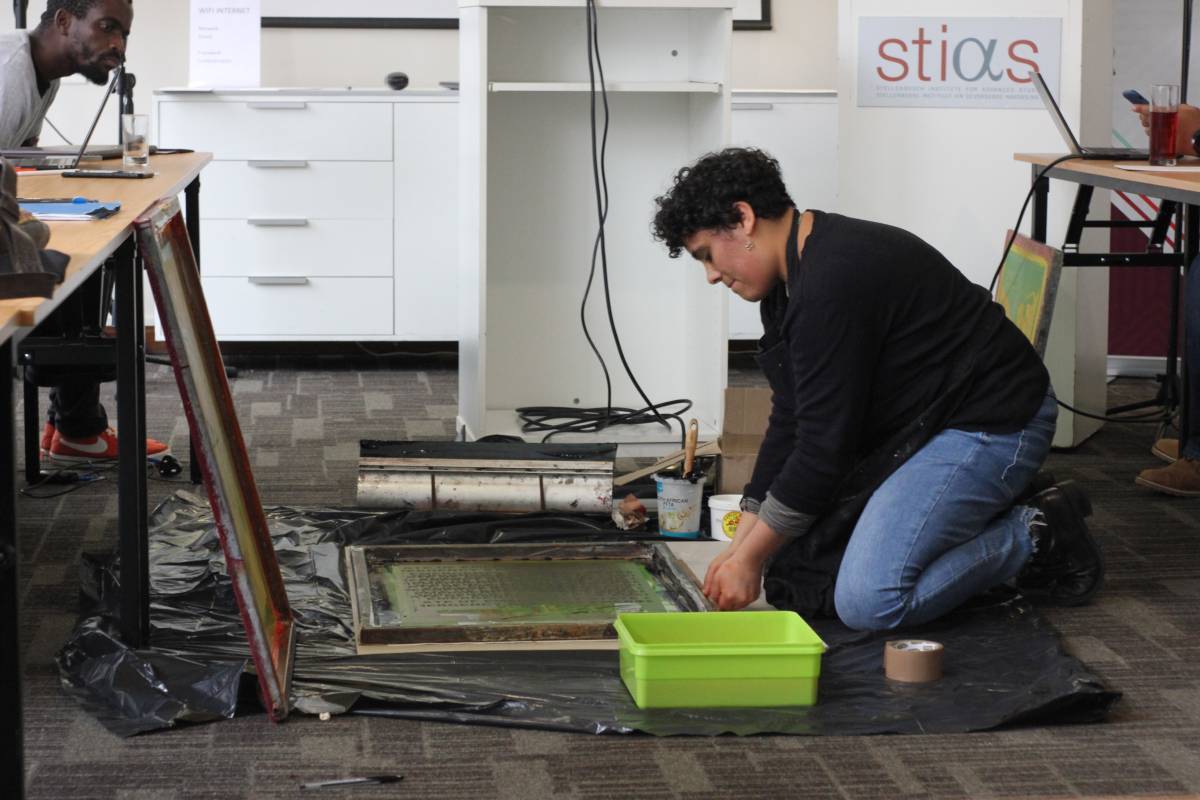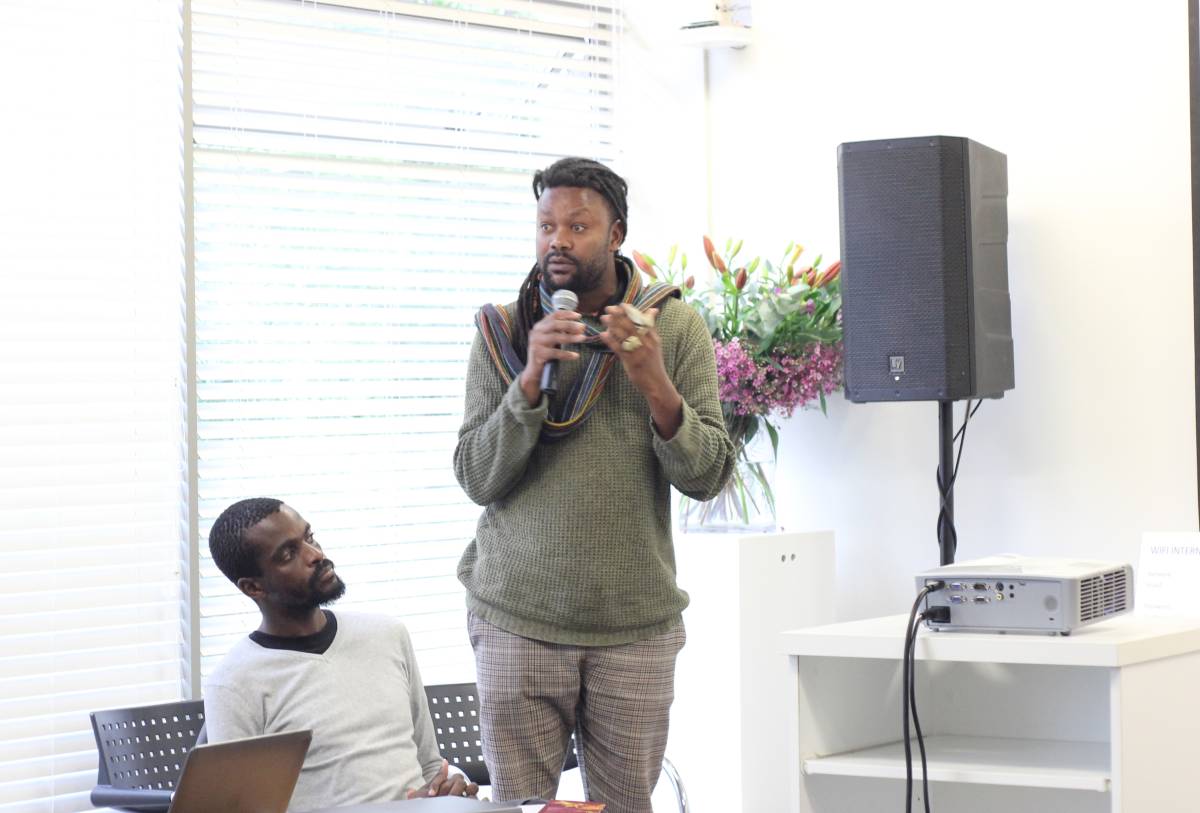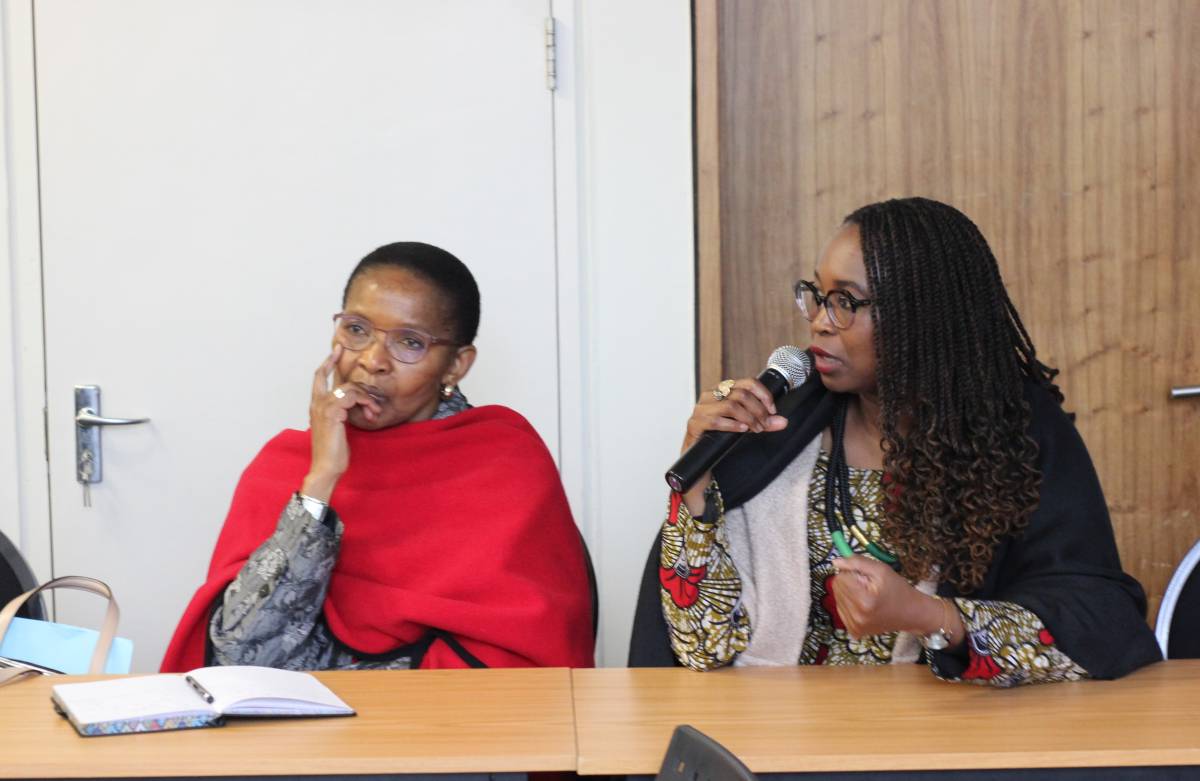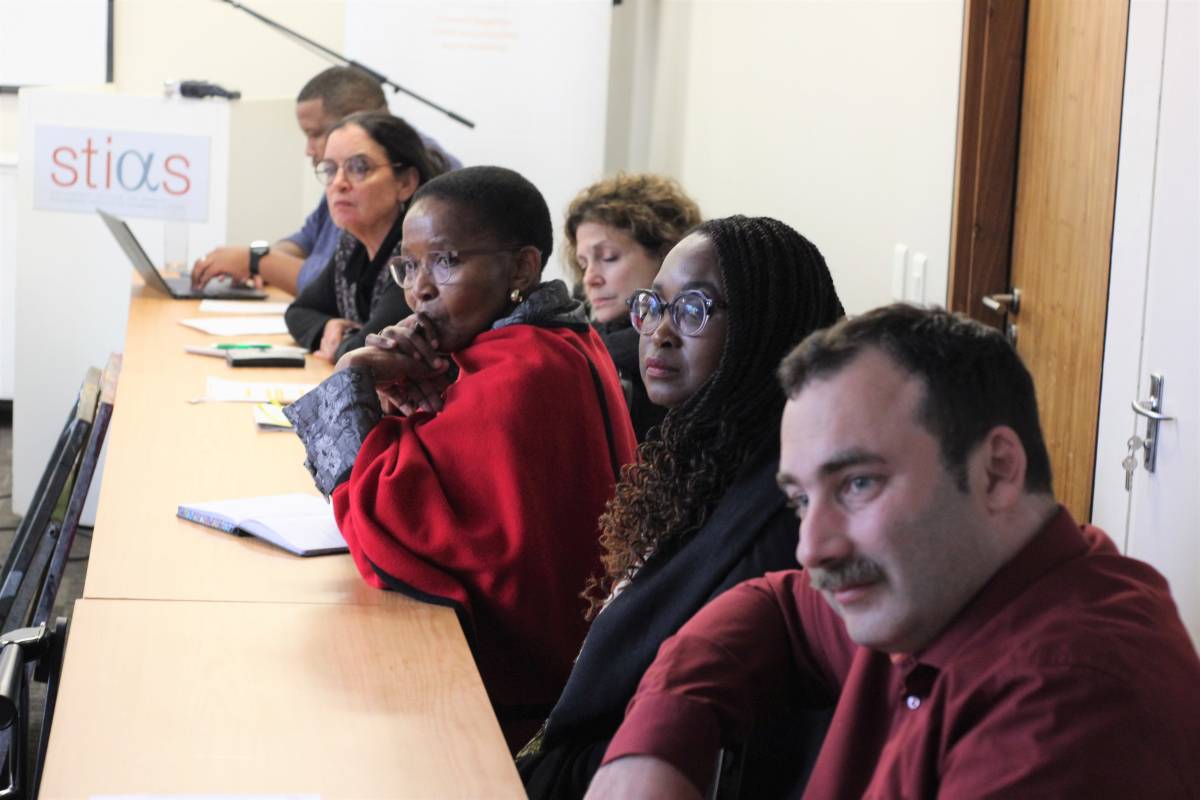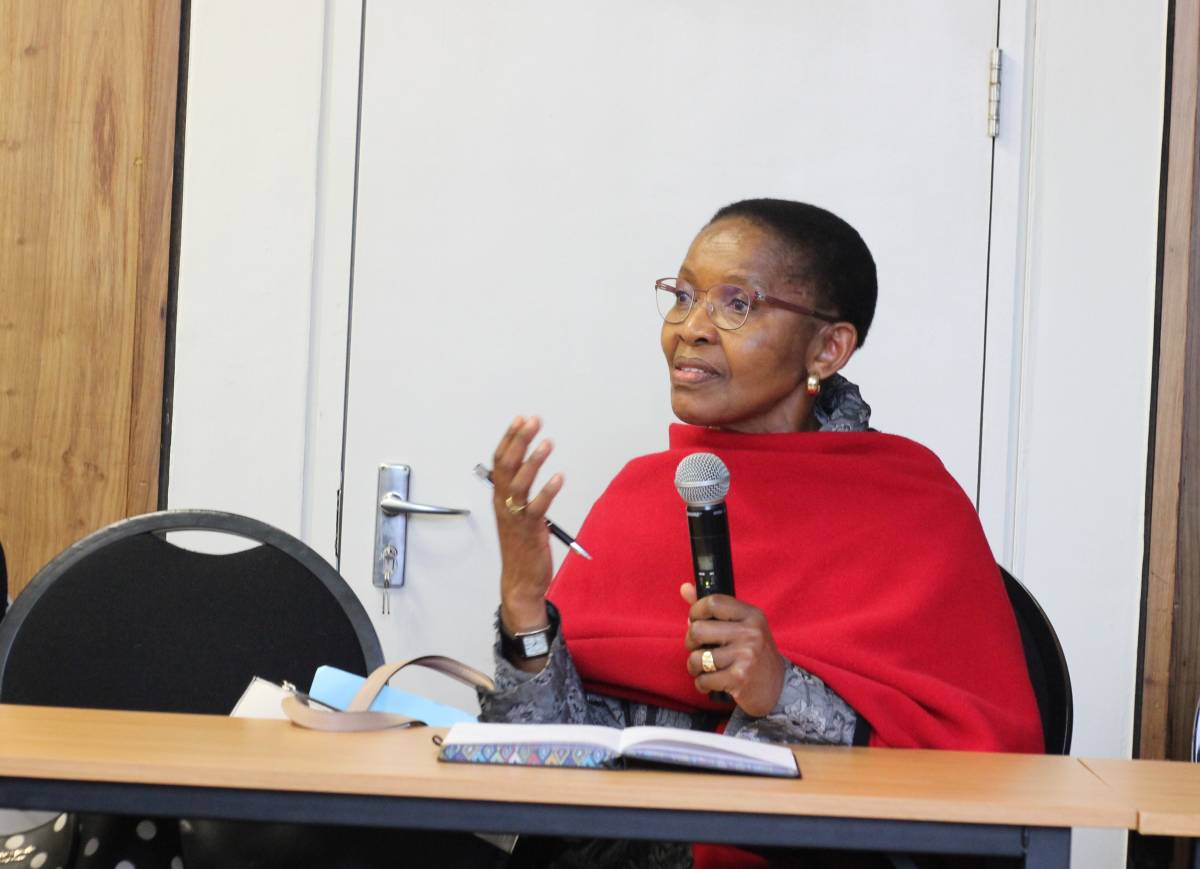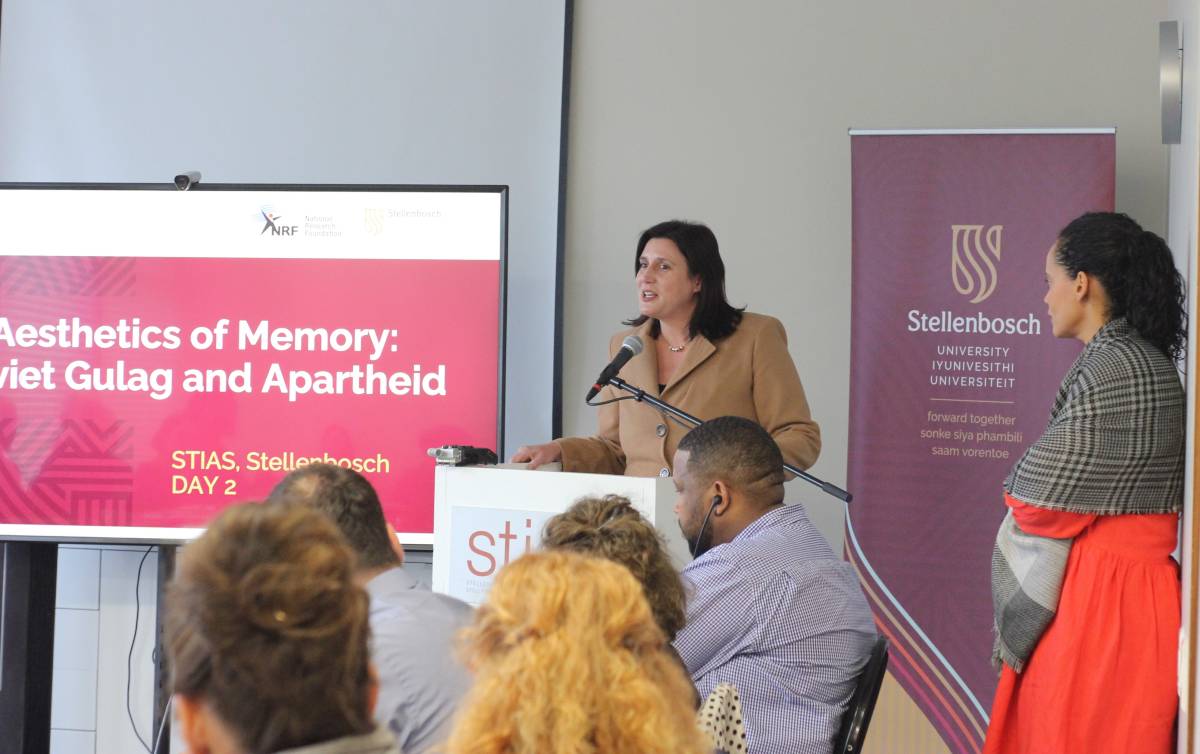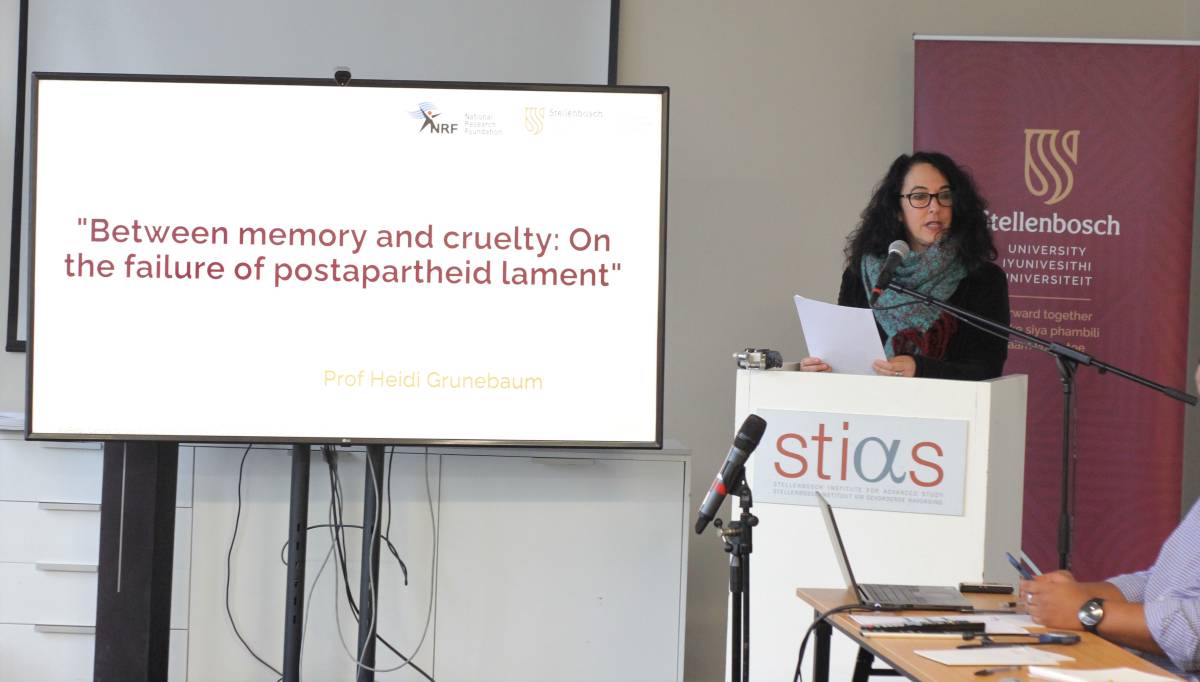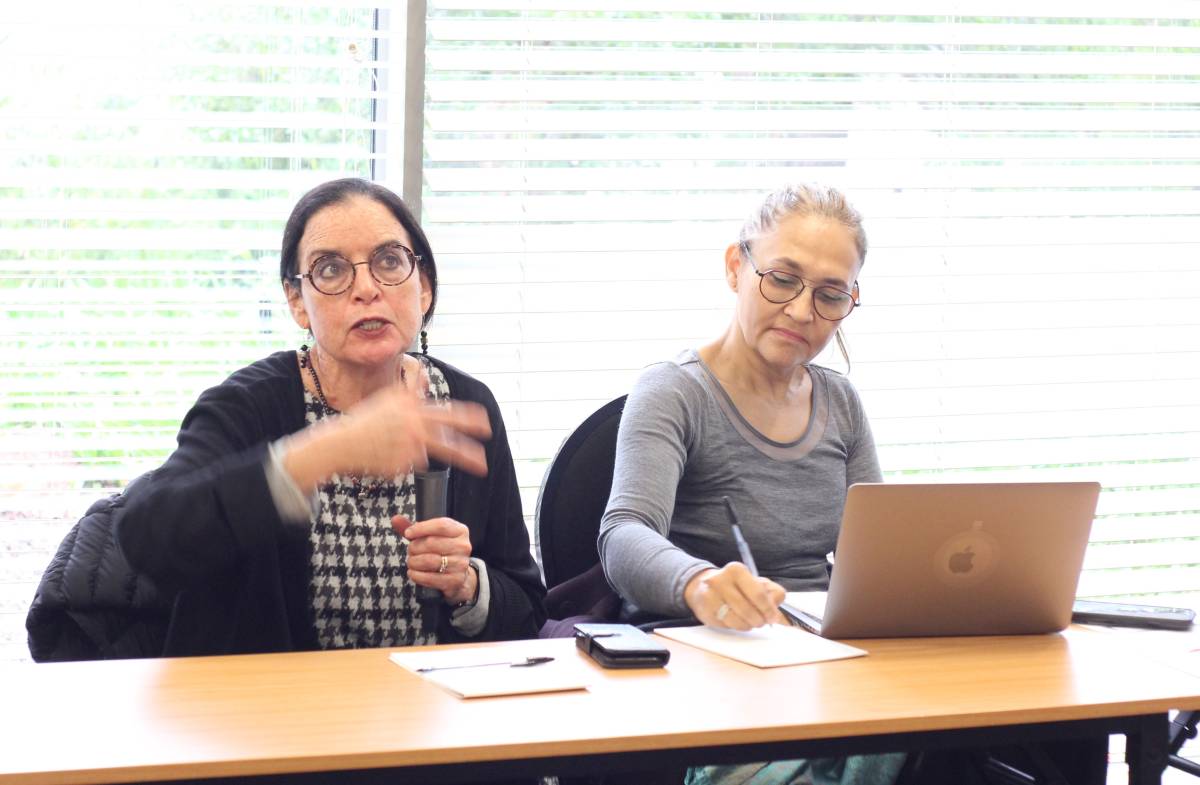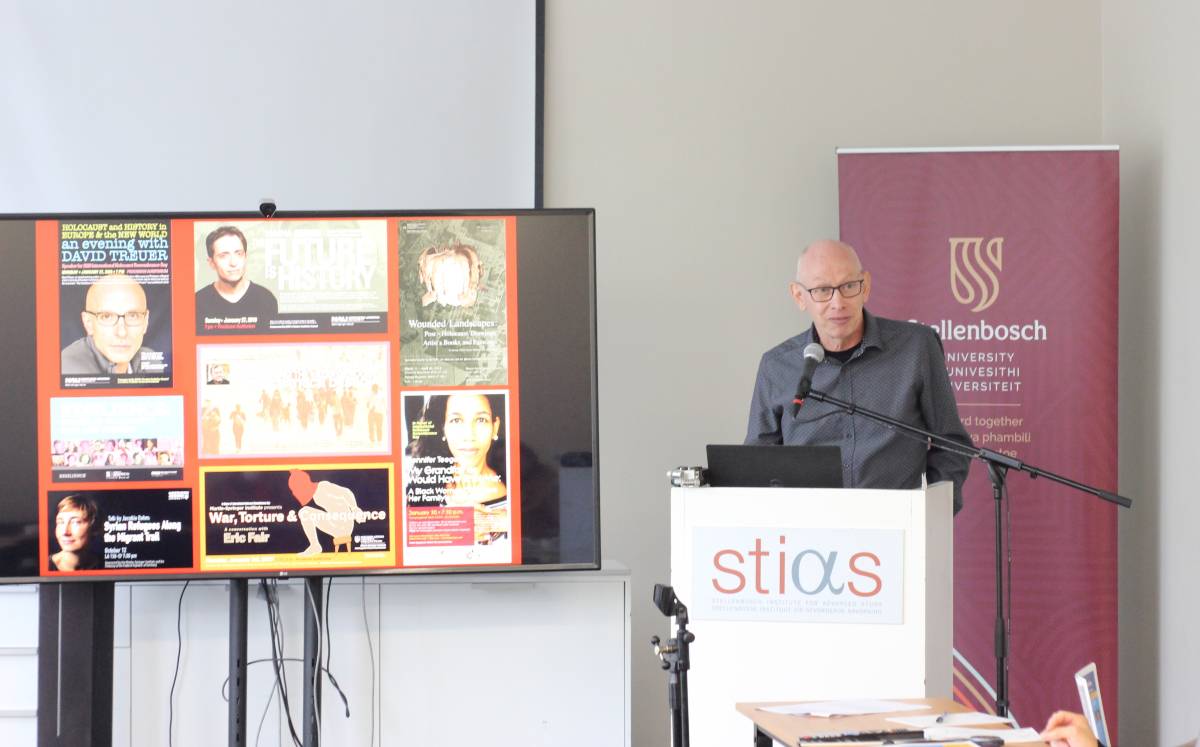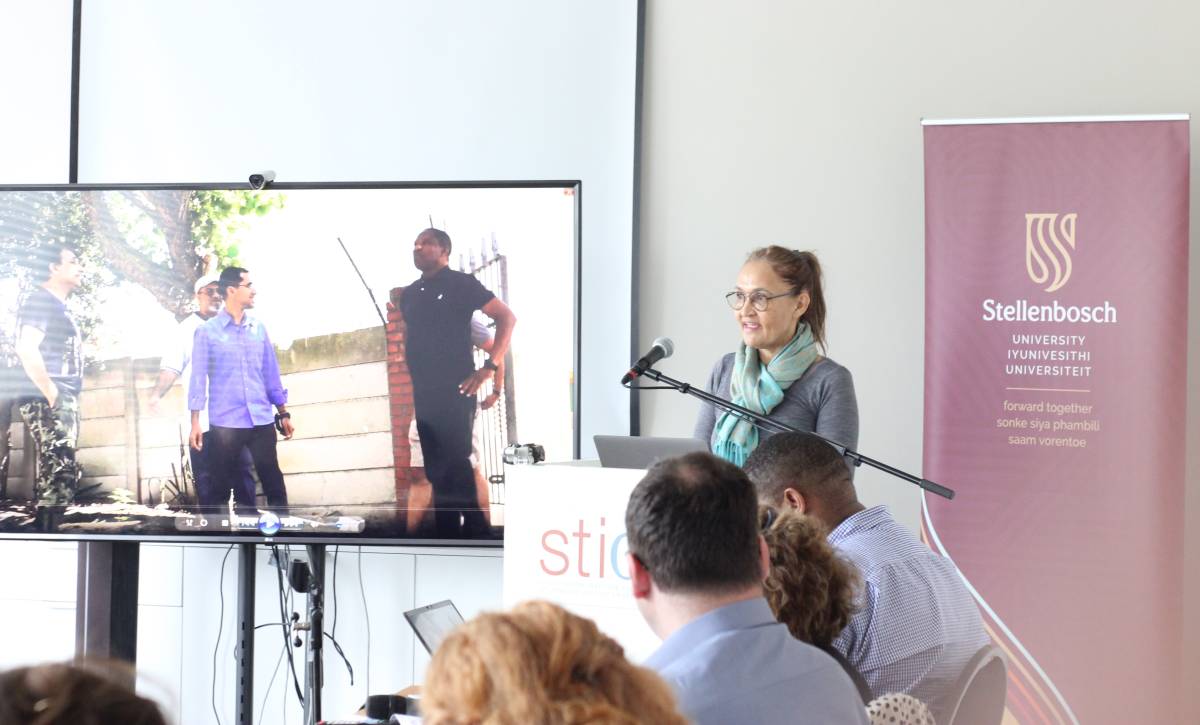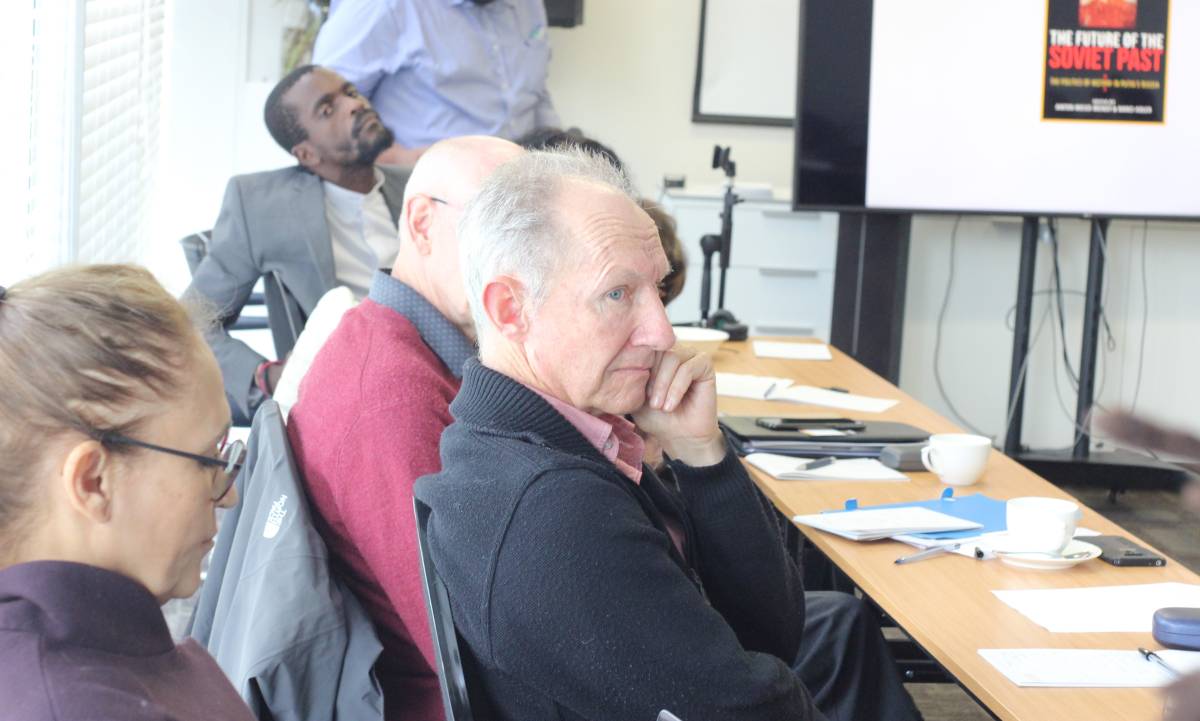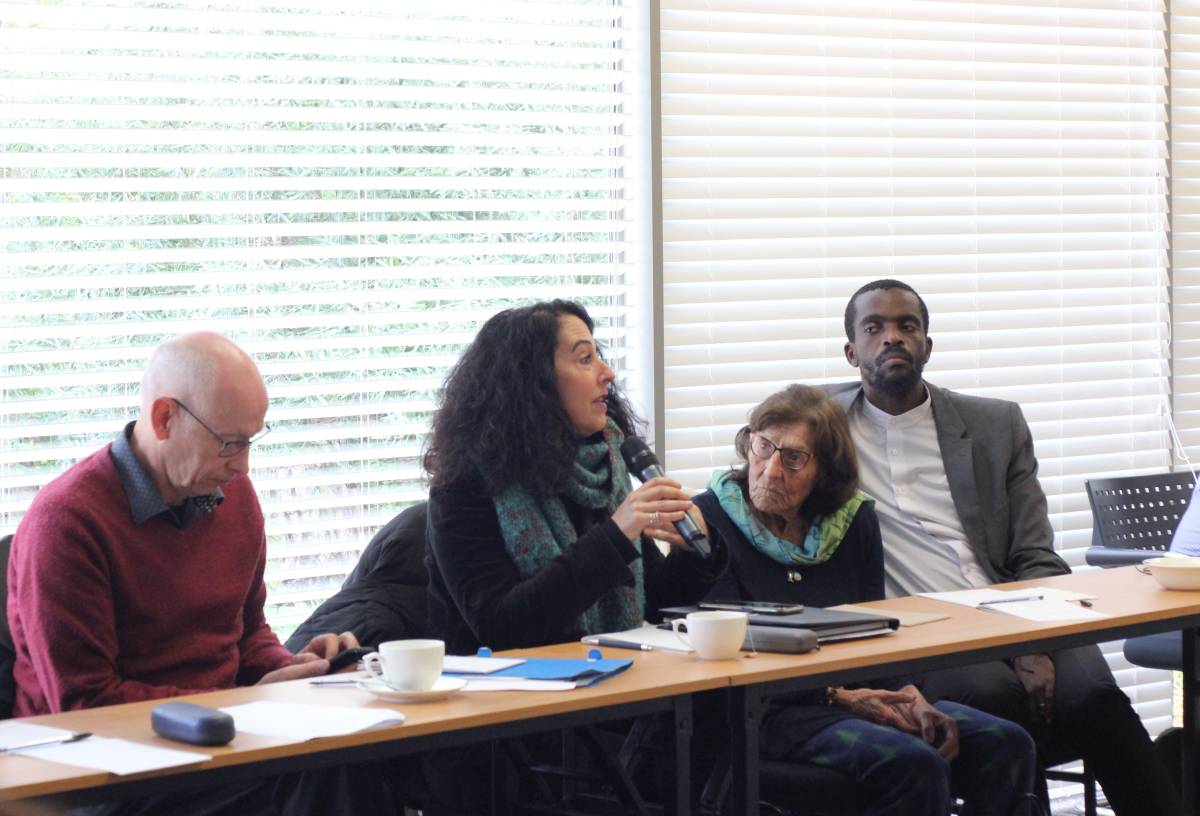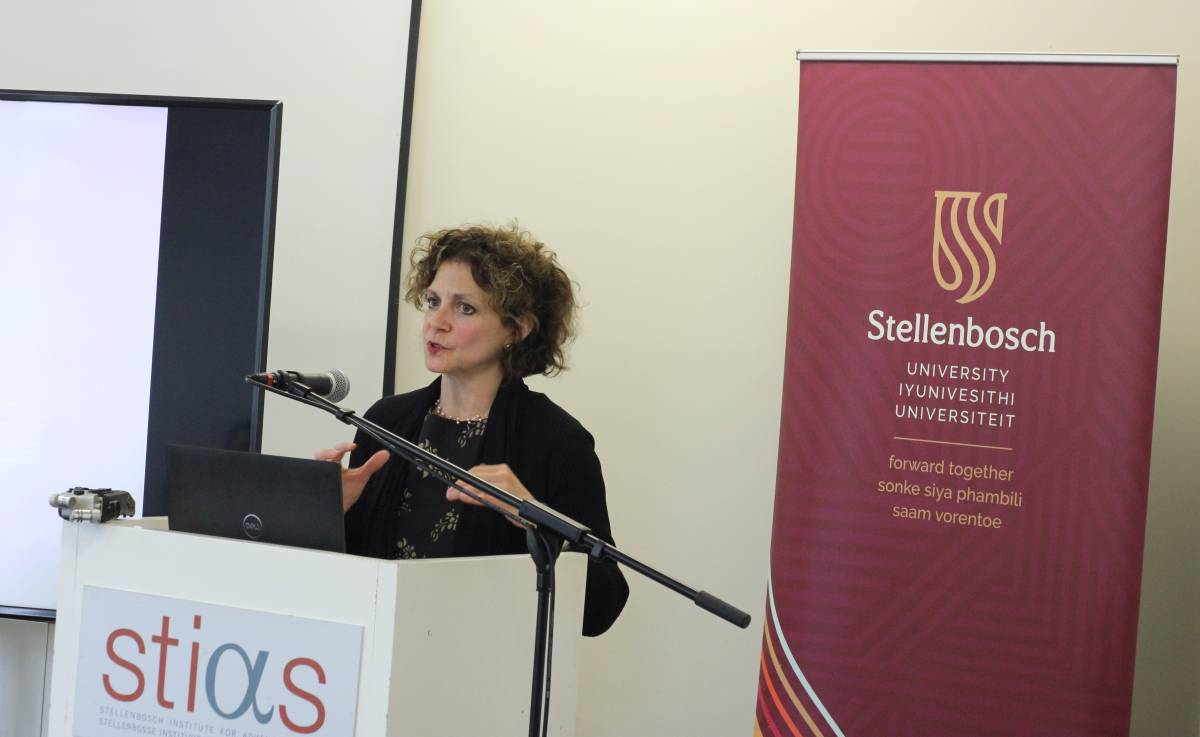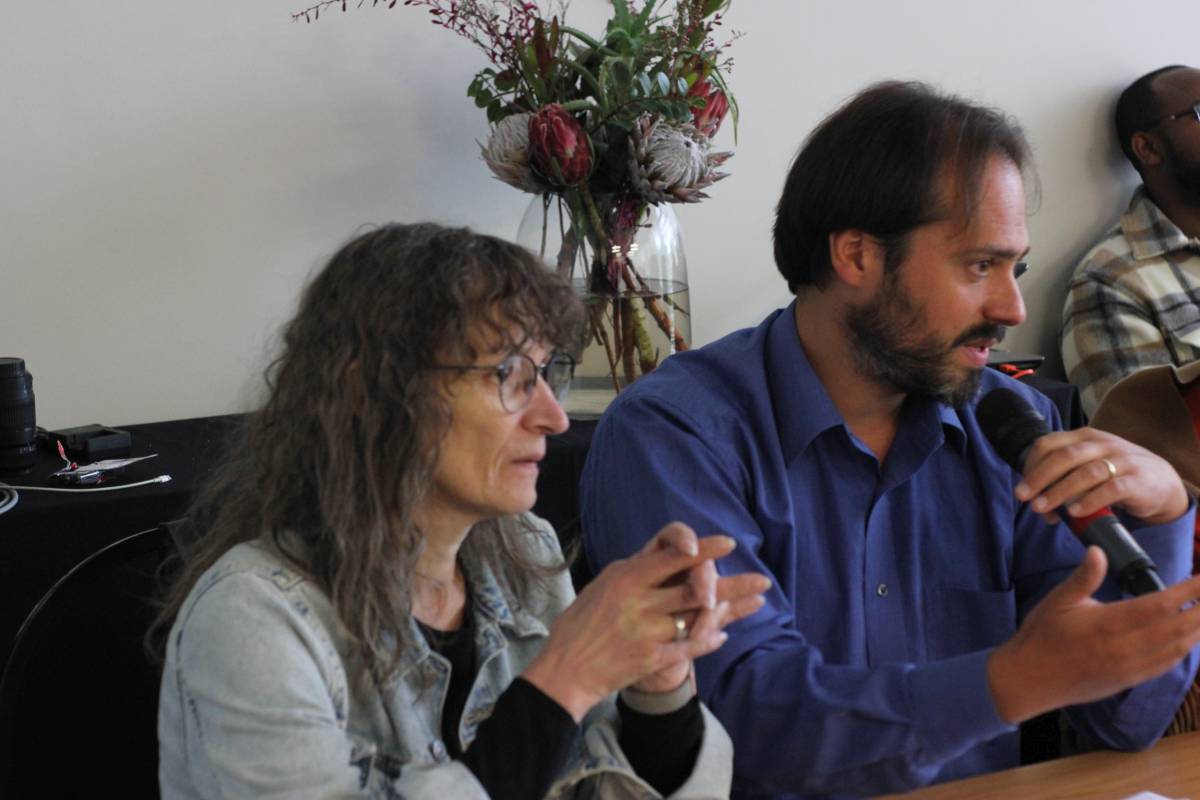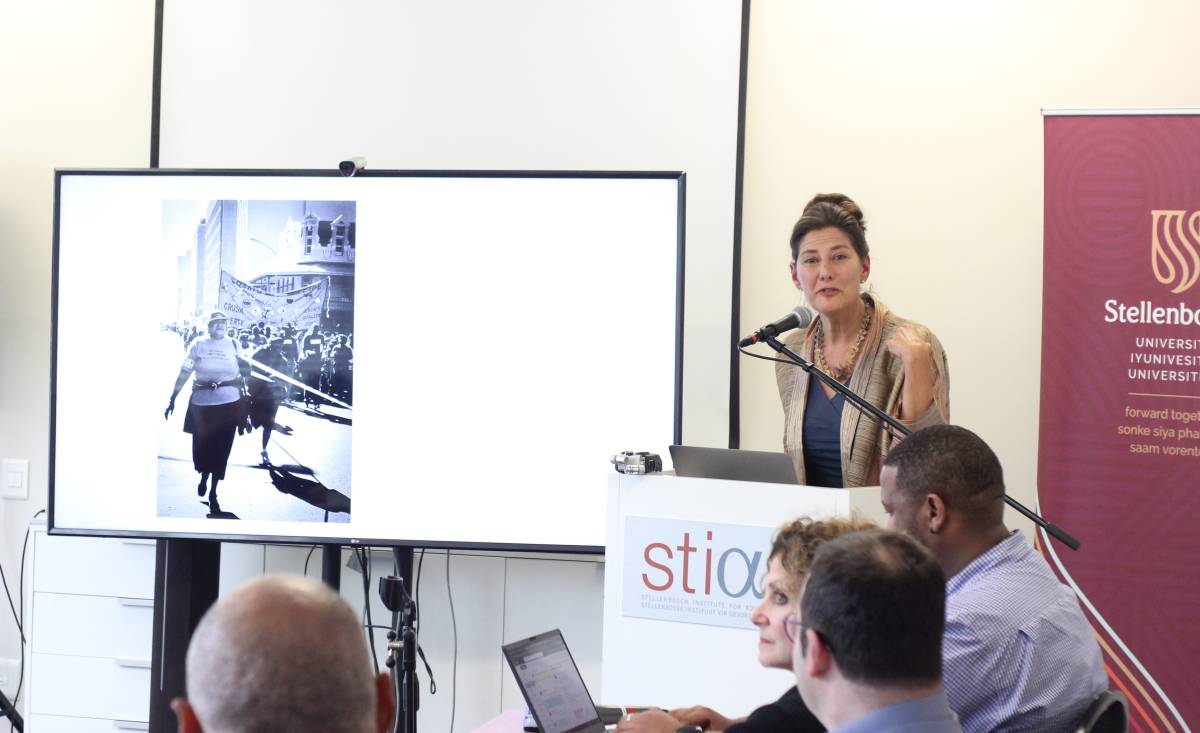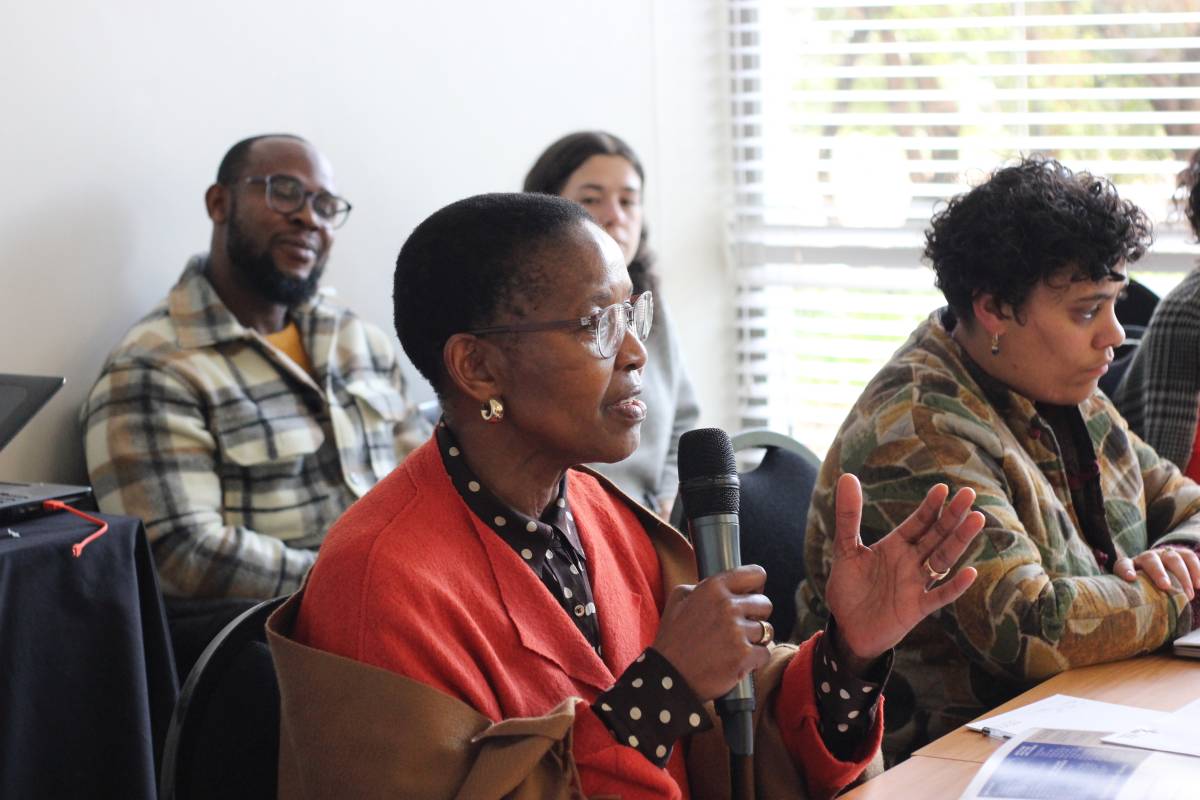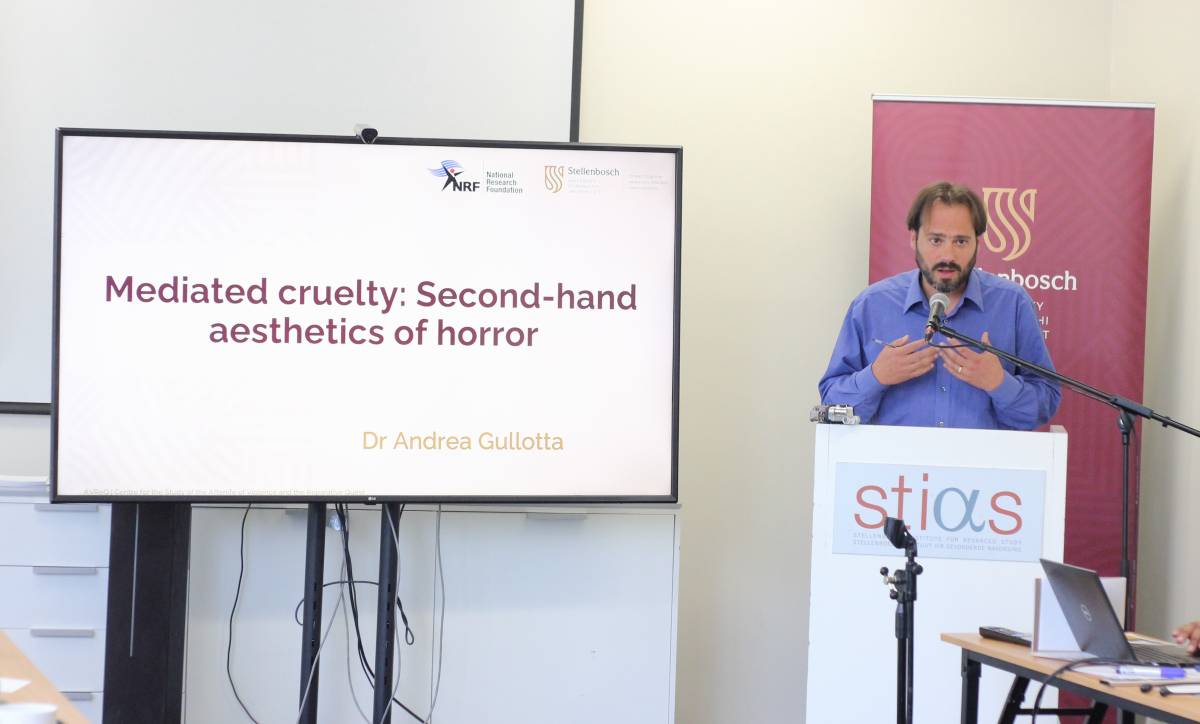Overview
STIAS, Stellenbosch
11-12 August 2022
Aesthetics of Memory will engage an interdisciplinary lens to explore the intersection of the politics of memory and the arts in the context of ongoing debates about histories of repression and violence, and more specifically the traumatic pasts of the Soviet Gulags and apartheid. Focusing on the transgenerational repercussions of these violent histories, this project is part of our interest in both scholarly research and public scholarship on the representation of past crimes through film, visual arts, photography, performing arts, and narrative representation of stories of suffering. The colloquium will be organised along three categories: (a) trauma narratives and bearing witness; (b) visual arts and photography; (c) performance art and exhibitions.
Lectures
Thinking with/through Art: Analogy, Juxtaposition and the Power of ‘sympathy’ in the Encounter between the Gulag and Apartheid.
by Prof. Tamar Garb
The Aesthetics of Memory versus the Aesthetics of Terror and the Gulag
by Ms. Irina Flige
Roundtable Discussion | Thinking with/through Art: Analogy, Juxtaposition and the Power of ‘sympathy’ in the Encounter between the Gulag and Apartheid
Respondents: Prof Pumla Gobodo-Madikizela, Prof Nanci Adler & Dr Andrea Gullotta
Podcasts
by Prof. Siona O’Connell
by Prof. Heidi Grunebaum
by Andrea Gullotta
Picture Gallery
Speaker Bios
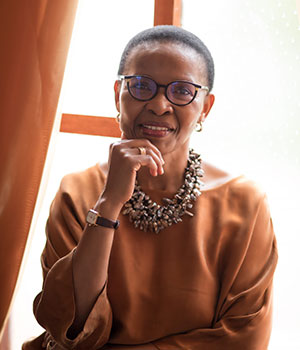
Pumla Gobodo-Madikizela
Professor Pumla Gobodo-Madikizela is the South African National Research Foundation Chair in Violent Histories and Transgenerational Trauma and Director of the Centre for the Study of the Afterlife of Violence and the Reparative Quest. She is the co-host of the Aesthetics of Memory Russia-South Africa Colloquium.
Click HERE for full profile
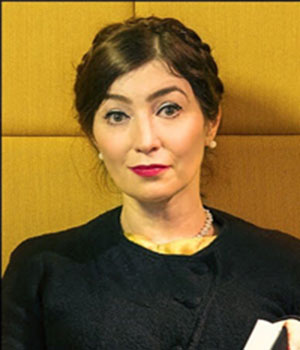
Katya Tolstoj
Professor Katya Tolstoj is Chair of Theology and Religion in Post-Trauma Societies and Founding Director of the Institute for the Academic Study of Eastern Christianity at the Vrije University, Amsterdam, and Founding President of the International Association for Post-Soviet Theology and Study of Religion. Her main interest in research and valorisations is to establish the new field of an interdisciplinary and interreligious post-Soviet theology, within the interdisciplinary landscape/scope of post-traumatic, post-totalitarian and post-genocidal studies. Her project Theology after Gulag is the first phase of this endeavour.
Click HERE for full profile
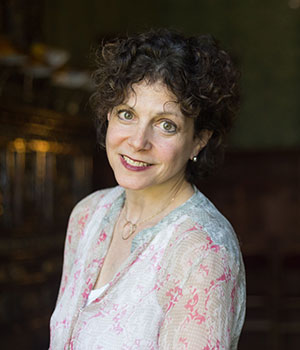
Nanci Adler
Nanci Adler is Professor of Memory, History, and Transitional Justice at the NIOD Institute for War, Holocaust, and Genocide Studies (Royal Netherlands Academy of Arts and Sciences) and the University of Amsterdam. She has authored and/or edited, several works, including Keeping Faith with the Party: Communist Believers Return from the Gulag (2012), The Gulag Survivor (2002), Understanding the Age of Transitional Justice (2018), (co-edited with A. Weiss-Wendt) The Future of the Soviet Past: The Politics of Memory in Putin’s Russia (2021), and numerous scholarly articles on the consequences of Stalinism. Her current research focuses on the organization Memorial, transitional justice, and the legacy of Communism.
Click HERE for full profile
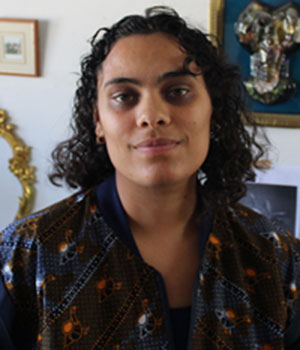
Stephané Conradie
Stephané Edith Conradie is a lecturer in Printmedia at Michaelis School of Fine Art, University of Cape Town, South Africa. Although primarily a trained printmaker, she is known for her bricolage assemblages. She is currently a PhD candidate in Visual Arts at the University of Stellenbosch, where she completed her MA in Visual Arts (Art Education) and her BA in Visual Arts (Fine Arts). Her research work focuses on trying to make sense of her social and economic ‘situatedness’, in a South African context. Her research stems from a fascination with how people categorise and arrange objects in their homes, particularly her own family members in both Namibia and South Africa.
Click HERE for full profile
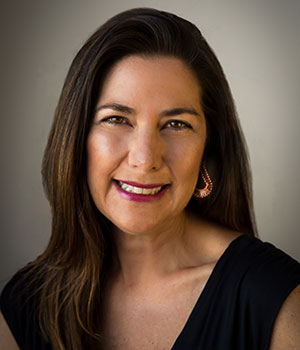
Jennifer N. Fish
Jennifer N. Fish (Ph.D., American University) is a Professor of Gender Studies and Sociology at Old Dominion University. Her research focuses on women’s labour, migration, and social justice, with 27 years of community-based scholarship in South Africa. She is the author of four books, the director of four documentary films, an expert on global service learning, and co-founder of Rwanda’s National Centre for Gender Studies. For the past ten years, she has worked with the United Nations to develop the first global policy for domestic worker rights. Most recently, she earned a Senior Fulbright Scholar award to expand university partnerships.
Click HERE for full profile
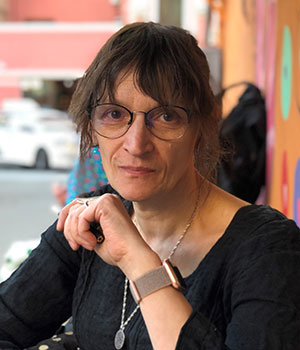
Irina Flige
Irina Flige is the director of the Memorial Research & Information Centre (St Petersburg). She has been a board member of the International Memorial Society since 2006 and director of a series of projects, among them the Virtual Museum of the Gulag and the Necropolis of Terror. Her interests are focused on the history of the Gulag and the fostering and encouragement of memory and commemoration. Flige is the author of a recent short volume entitled ‘The Search for Sandormokh: Russia’s Unquiet Past’ (2019; in Russian «Сандормох: драматургия смыслов»). She has written two monographs, published over forty research papers and articles, and served as the editor and compiler of a number of collections about the history of the Gulag and of Soviet Terror.
Click HERE for full profile
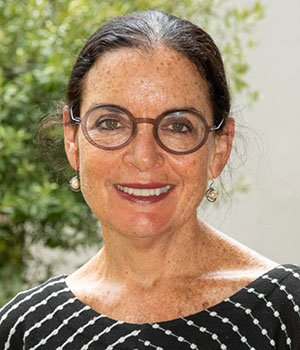
Tamar Garb
Tamar Garb is Durning Lawrence Professor in History of Art, University College London. She has published widely on questions of gender, sexuality, the woman artist and the body. Key publications include Bodies of Modernity (1996) and The Painted Face, Portraits of Women in France 1814 -1914 (2007). Her recent work addresses post-apartheid culture and art as well as the history of photographic practices in Africa. Selected exhibitions she has curated include: Land Marks/Home Lands; Contemporary Art from South (2008) Figures and Fictions: Contemporary South African Photography, (2011) Distance and Desire: Encounters with the African Archive, (2014/15) and Made Routes: Vivienne Koorland and Berni Searle, (2019).
Click HERE for full profile
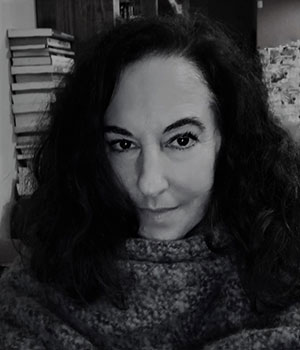
Heidi Grunebaum
Professor Heidi Grunebaum is a writer and academic, and Director of the Centre for Humanities Research, University of the Western Cape. Her work focusses on the afterlives of genocide, war and forced displacement, and on the relationship between art and politics. She is author of Memorialising the Past: Everyday Life in South Africa after the Truth and Reconciliation Commission (2011), co-editor of Uncontained: Opening the Community Art Project Archive (2012) and Athone in Mind (2017) amongst other writings. With Mark J. Kaplan, she made the documentary film, The Village Under the Forest (2013) on the Palestinian Nakba. She is currently making a second documentary film with Kaplan set in Germany on weaponization of Jewish memory politics.
Click HERE for full profile
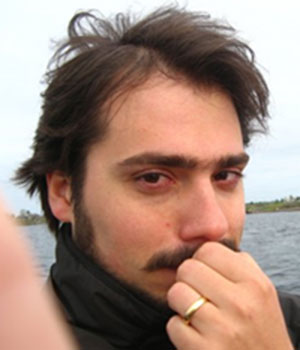
Dr. Andrea Gullotta
Dr. Andrea Gullotta is lecturer in Russian at the University of Palermo. He has also worked for the University of Glasgow, the Ca’ Foscari University of Venice and the University of Padua, where he obtained his PhD. He is co-editor of the journal AvtobiografiЯ, which deals with life-writing and the representation of the self in Russian culture. His main research area is Gulag literature. He has authored dozen of works on Gulag literature, Gulag poetry and Gulag culture.
Click HERE for full profile
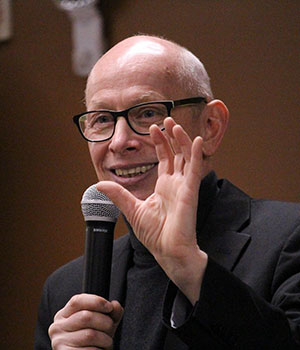
Björn Krondorfer
Björn Krondorfer is Regents’ Professor, the Director of the Martin-Springer Institute at Northern Arizona University, and Endowed Professor of Religious Studies. He held guest professorships and fellowships at the Freie University Berlin (Germany), the University of the Free State (South Africa), and the Vrije University at Amsterdam. He is currently the VP of the “Association for Public Religion and Intellectual Life,” and was elected chair in 2020 of the “Consortium of Higher Education Centers for Holocaust, Genocide, and Human Rights Studies.” Recent publications include Unsettling Empathy: Working with Groups in Conflict (2020); The Holocaust and Masculinities (2020); Reconciliation in Global Context (SUNY); and Male Confessions: Intimate Revelations and the Religious Imagination (2010).
Click HERE for full profile
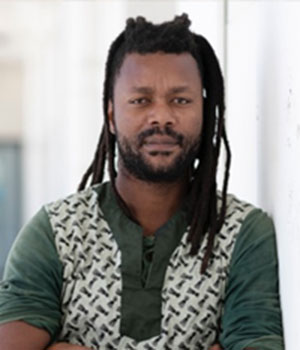
Nashilongweshipwe Mushaandja
Nashilongweshipwe Mushaandja is a cultural worker, educator and writer with practice-research interests in performance, archives and public culture. He is currently completing his PhD in Performance Studies at the University of Cape Town, with a thesis on Oudano, an African concept of performance. Mushaandja’s work has been performed widely at festivals, museums, theatres and archives in Germany, Switzerland, South Africa, Zimbabwe, Mozambique, Cameroon and Namibia. Previous records of Mushaandja’s performance work as Tschuku Tschuku include Black Bantu Child (2012) and Trance !Namib Freedom Station (2017). The latest Tschuku record Ondaanisa yo pOmudhime was released in September 2021 and is available on all online platforms and on CD.
Click HERE for full profile
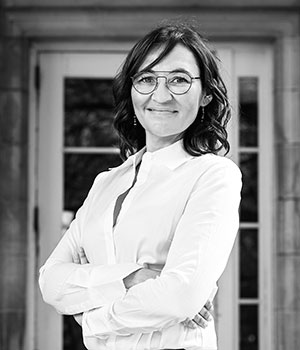
Siona O’Connell
Professor Siona O’Connell (PhD) is an African Studies scholar/practitioner in the School of the Arts at the University of Pretoria. Her research focus falls within three areas, that of Memory Studies, Creative Studies and Restorative Justice in postcolonial and post-apartheid South Africa. She is widely respected for her work on the effects of race-based land dispossession. Her co-edited book, ‘Hanging on a Wire’ won the 2018 National Institute for the Humanities and Social Sciences (NIHSS) Humanities and Social award for the best non-fiction edited volume and her monograph on forced removals in Cape Town, “An Impossible Return: Cape Town’s Forced Removals” continues to garner broad recommendations.
Click HERE for full profile
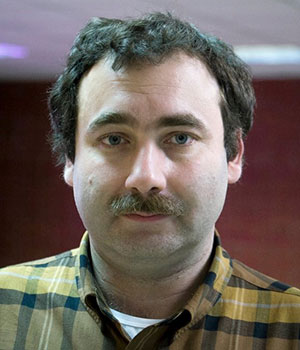
Dmitry Pritykin
Dmitry Pritykin is the information and education projects manager for Memorial, St. Petersburg, since 2008.He is a graduate from the Political Science and History faculty at the Herzen University (St. Petersburg, Russia). In 2018 Dmitry became a member of the board of both International Memorial and Memorial Russia. He is the director of the Educational Internet Projects of St. Petersburg Memorial since 2011. His primary function is to build Memorial’s community, establish and support the informational resources and project management from idea generation to implementation. The projects he has curated includes: The Open Digital Archive, Map of Memory: Russia’s Necropolis of Terror and the Gulag, and The Role of Historical Memory for the Development of Human Rights (2011-2013).
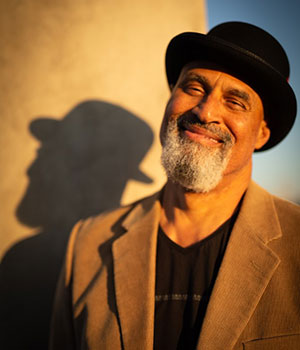
Tim Seibles
Tim Seibles is an American poet, professor and the former Poet Laureate of Virginia. He holds a BA from the Southern Methodist University and an MFA from Vermont College. Born in Philadelphia in 1955, Tim Seibles is the author of seven collections of poetry, including his most recent, Voodoo Libretto (Etruscan Press, 2022), One Turn Around the Sun (Etruscan Press, 2017), and Fast Animal (2012), which won the Theodore Roethke Memorial Poetry Prize, received the PEN Oakland Josephine Miles Award, and was nominated for a 2012 National Book Award. Other titles are Buffalo Head Solos (2004), Hammerlock (1999), Hurdy-Gurdy (1992), and Body Moves (1988).
Click HERE for full profile
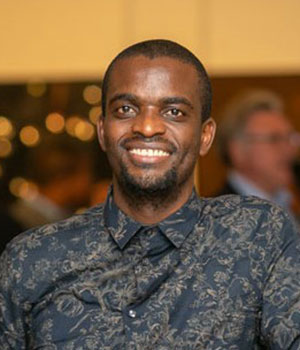
Pfunzo Sidogi
Pfunzo Sidogi is a lecturer and head of the Department of Fine and Studio Arts in the Faculty of Arts and Design at the Tshwane University of Technology. His latest book, co-edited with Denis Ekpo, is titled The de-Africanization of African Art: Towards Post-African Aesthetics (Routledge, 2021).
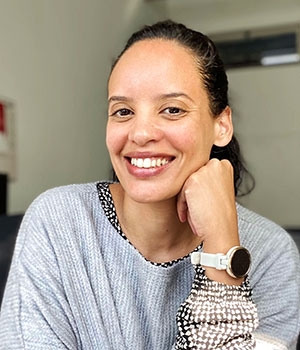
Greer Valley
Greer Valley is a lecturer in History of Art at the Wits School Arts, University of the Witwatersrand, and an independent curator and writer. She is a doctoral candidate in Art Historical Studies at the Michaelis School of Fine Art and a Doctoral Fellow at the Archive and Public Culture Initiative at the University of Cape Town. She currently serves on the Africa South Arts Initiative (ASAI) board and as a member of council and chair of the exhibitions committee of the Kwa-Zulu Natal Society of Arts. In 2019/20. Greer was selected as a Getty Foundation MAHASSA (Modern Art Histories in and Across Africa, South and Southeast Asia) scholar and she formed part of the Dak’art Biennale 2020 selection committee.
Click HERE for full profile
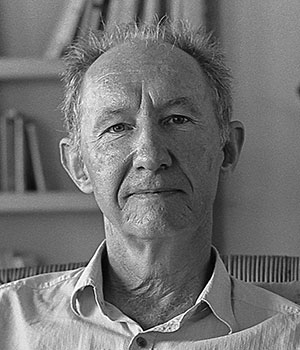
Wilhelm Verwoerd
Dr. Wilhelm Verwoerd is a senior researcher and facilitator at the Centre for the Study of the Afterlife of Violence and the Reparative Quest (AVReQ), Stellenbosch University. As a former researcher within the South African Truth and Reconciliation Commission (1995-98) and a peace practitioner in (Northern) Ireland (2001-2012), Verwoerd is devoted to (re)humanisation in contexts of violent political division. His main research interests include the shared historical responsibility of white South Africans for apartheid and colonialism and the dynamics of deep racial repair.
Click HERE for full profile
The Programme
DAY 1, THURSDAY, 11 AUGUST 2022
| TIME | PRESENTATION TITLE & PRESENTER(s) | RESPONDENT(S) / CHAIR |
| 09:30-09:55 | Welcome and Opening Remarks – Prof Pumla Gobodo-Madikizela and Prof Katya Tolstoj | |
| 10:00-11:25 | Roundtable Discussion: Thinking with/through Art: Analogy, Juxtaposition and the Power of ‘sympathy’ in the Encounter between the Gulag and Apartheid.
– Prof Tamar Garb To attend, register HERE |
Respondents:Prof Pumla Gobodo-Madikizela,
Prof Nanci Adler, |
| 11:30-12:55 | The Aesthetics of Memory versus the Aesthetics of Terror and the Gulag – Ms Irina Flige
– Mr Dmirtii Prytikyn To attend, register HERE |
Chair:Dr Andrea Gullotta |
| 13:00-13:55 | LUNCH | |
| 14:00-15:25 | Between memory and cruelty: On the failure of postapartheid lament – Prof Heidi Grunebaum | Chair:Greer Valley |
| 15:30-15:45 | TEA BREAK | |
| TIME | PRESENTATION TITLE & PRESENTER(s) | CHAIR |
| 15:50-17:00 | After Fire: Art and the State(s) of Emergency in Namibia and South Africa – Prof Nashi Mushaandja, Greer Valley, Dr Pfunzo Sidogi, Ms Stephané Conradie | Prof Siona O’Connell |
| 18:30 | Dinner at The Lanzerac Hotel | |
DAY 2, FRIDAY, 12 AUGUST 2022
| TIME | PRESENTATION TITLE & PRESENTER(s) | CHAIR | |
| 09:00-10:10 | Aesthetics vs. Ontology of the Gulag. A Case Study of Varlam Shalamov’s “The Glove”– Prof Katya Tolstoj | Prof Nanci Adler | |
| 10:15-11:25 | All That Is Left: Haunting and Toxic Memory Objects– Prof Björn Krondorfer | Prof Jennifer N. Fish | Working Tea |
| 11:30-12:40 | Ballie Boys– Prof Siona O’Connell | Prof Tamar Garb | |
| 12:40-13:15 | LUNCH | ||
| 13:15-14:25 | Representing, or Reconceptualizing Suffering? Case Studies of the Narratives of Gulag Survivors– Prof Nanci Adler | Prof Pumla Gobodo-Madikizela | |
| 14:30-15:40 | The Symbolics of Systemic Cruelty: Domestic Labor in the Everyday Visual Landscape– Prof Jennifer N. Fish | Ms Stephané Conradie | |
| 15:40-16:00 | TEA BREAK | ||
| 16:00-17:10 | Mediated cruelty: Second-hand aesthetics of horror– Dr Andrea Gullotta | Prof Heidi Grunebaum | |
| 17:15-17:35 | Poetry As a Form of WitnessingPOETRY OFFERING
– Prof Tim Seibles |
Dr Wilhelm Verwoerd | |
| 17:35 | WRAPPING UP IN PLENARY AND NEXT STEPS | ||
| 18:30 | Dinner at The Wine Glass (Stellenbosch) | ||


